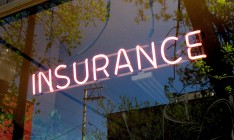Finance
InsuranceInsurance companies hope to turn a quick buck from new forms of insurance

Insurers are losing their business. This year as brought Ukraine’s insurance market more trials than the financial crisis in 2009. The drop in sales compared to 2013 over nine months could reach 35% and 50% for the entire year, according to the League of Insurance Organizations of Ukraine (LIOU). For example, in 2009 these figures were 18% and 15%, respectively.
This comes as no surprise: five years ago insurers did not sustain any losses in the eastern oblasts of Ukraine and Crimea, while these two regions accounted for almost a quarter of all earnings. “In the total portfolio of the insurance market the Donetsk and Luhansk oblasts account for 18% of earnings. Adding 3% from Crimea, this figure is close to 21%,” said First Vice President of AXA Insurance Andriy Peretyazhko. However, he says the situation in Crimea and the Donbas was not the only reason for the decline in the insurance business. “We must keep in mind the decrease of the purchasing power of clients, the decrease in consumer demand (particularly for new vehicles), the decline in lending and devaluation of the hryvnia. All these factors contributed to the decrease in the number of clients in all categories of risk insurance,” said Peretyazhko.
Heavy losses
This year, payments for property and CASCO insurance will be cut above all. “This year, car sales have significantly dropped. This directly affects the extent of this form of insurance. Premiums for property risks have decreased by 15%, though premiums for third party liability insurance (TPLI) could increase by 5% and premiums for voluntary medical insurance (VMI) could increase by 15%,” says Deputy Director of Sales at Allianz Ukraine Anton Kaminskiy.
Real estate insurance will shrink noticeably as one of the areas of property protection, too. “Speaking of individuals, mortgage lending is the main donor in this sector. Since mortgage lending is idle, the increase of the sector is out of the question,” says Peretyazhko.
At the same time, the decline in classic forms of insurance in terms of scope appears to be less depressing than in terms of the number of policies. The reason for this is devaluation of the national currency, which has led to an increase in insurance payments, according to one of the partners at BritMark Andriy Kosenkov. “The Ukrainian currency is pegged to the U.S. dollar, for example, for the appraisal of the cost of vehicles, which means that insured amounts and payments also increase with the rising currency exchange rate,” said Kosenkov.
According to the LIOU, in 2014 the number of property insurance contracts will decrease by 40–50%, the number of CASCO agreements will drop by 35–40%, TPLI contracts – by 10% and VMI and accident insurance – by 5–10%.
“The number of corporate clients will be the first to decrease. They reject voluntary insurance, usually insuring only risks on mandatory insurance,” says Deputy CEO of Sales at the Nova Insurance Company Lina Kravchenko.
Experts say that reduction of circuit operations, which were carried out with the participation of enterprises, is a bright spot in such a situation.
Steering clear from the banks
Before the crisis in 2008, the sales of insurance policies through banks reached 90% in the portfolios of many insurance companies. Five years ago the crisis lowered the rate to 40–60%. In 2014, according to Zalyotov’s forecasts, the rate will be reduced by another 70–80% compared to the previous year. “In 2014, insurance companies will reconsider their work with banks,” Director of Dominanta Oleksiy Rumyantsev believes.
Previously, insurers placed deposits in banks for accreditation and to gain access to insurance of borrowers, but this year many players are withdrawing deposits from small and medium-sized banks, giving up the prospect of earnings. “Placement of deposits in banks on the verge of closure, bankruptcy and the possible introduction of provisional administration is an unacceptably risky investment policy for insurance companies. For this reason, we simply refuse to cooperate with a number of banks, which was not the case in the past as the risk of insolvency was occasional. Today, this risk is higher than ever for many banks,” said Rumyantsev.
Therefore, he says it is quite possible that we will see a fundamental transformation of relations between insurance companies and banks. “Most insurers will transfer their resources into larger, more stable banks, even if they have to sacrifice insurance premiums and investment income,” says the source.
Peretyazhko believes that next year insurers will look for opportunities to develop new business relations with banks, as the latter have to earn commissions on non-credit transactions, while the former are looking for opportunities to compensate for declining payments.
Balance of interests
Losing traditional forms of business insurers are seeking alternative spheres to fill the gap. As for voluntary insurance, there are no universal recipes and each insurer will seek its own way to make money, says Rumyantsev.
For example, Nova has launched a campaign to promote the insurance of banking institutions. “We offered banks a new service for insurance of special devices (containers, cases) for storage and transportation of cash and valuables in collector vaults,” says Kravchenko.
Representatives of Arsenal Insurance told about new products for the protection of buyers in retail stores. Now, the company insures household appliances from practically all types of risks – illegal actions of third parties, outdated wiring, breaks in water supply systems and even lightning.
“Some insurance companies will compensate losses in CASCO insurance and property insurance with their own types of insurance; some increase sales of VMI, travel policies and accident insurance. Some are even increasing their share of TPLI, while others have reconciled with the negative dynamics for purely objective reasons and above all try to end the year with a profit or a minimum loss,” says Kaminskiy.
Canny move
The crisis has led to the growth of the market of pseudo-insurance services. In particular, the Eldorado chain of stores sells appliances with liability insurance, though it is not specified in the receipt whose liability is insured. Be that as it may, the price of the appliance and the price of insurance are indicated in the receipt, though in fact the buyer pays only the cost of the product. It is unclear who pays for the insurance. Experts believe this is some kind of a marketing trick or the support of an affiliated insurer. “When the liability of the supplier of goods is insured, the price of insurance is included in the cost of goods. Apparently, receipts indicate the existence of insurance for marketing purposes,” suggests Kravchenko.
Representatives of Eldorado said this was a new insurance product and its sale was neither a special offer, nor the support of any companies. Representatives of the company did not explain why customers were insured without their knowledge or why they did not explain to them the terms of insurance, though both are requirements of the law.
Banks started offering another questionable form of insurance taking advantage of the excess demand for the purchase of foreign currency and early withdrawal of deposits. “Today, I went to three banks. In one of them I was told that it was possible to withdraw only UAH 500, in another they said I could withdraw up to UAH 5,000, though only on condition of buying an insurance policy for UAH 50,” said Marunych on his Facebook page.
The majority of the insurance market players say such “new” business will not improve the situation with payments, but on the contrary could harm the company’s image. “Such programs are clearly non-market in nature. Coercion to buying a policy may only degrade the image of the insurer offering such a program,” says Kravchenko.
Mandatory liable
Many experts see a legitimate and simple way of development of the insurance business in the new forms of mandatory insurance. However, while earlier insurers themselves advocated mandatory liability, now this sphere is popular among representatives of other sectors, for example, tourism and construction.
Indeed, by the end of the year Ukraine may receive mandatory insurance of liability of tour operators – representatives of the insurance and tourism markets are drafting a decree of the Cabinet of Ministers. “Travel agencies were the first to propose such an initiative. They were supported by many tour operators and players on the insurance market,” said Chairman of the Association of Hospitality Industry Oleksandr Liyei. He added that the bankruptcy of a number of travel agencies was the motivation to introduce mandatory liability insurance on the tourism market.
The draft stipulates the establishment of a pool of “tourism” insurers and a guarantee fund of EUR 1 mn. It is expected that the responsibility of travel agencies to tourists will be set at EUR 3,000 and the rate will be 1% of the tour price. The draft is still in progress. Many experts believe that preparation of mandatory insurance of liabilities of tour operators in the midst of the crisis appears to be an attempt of travel agencies and insurers to solve their problems at the expense of tourists. Experts estimate that the volume of such a new form of insurance is more than UAH 100 mn.
The situation is similar with mandatory insurance of liability of developers and organizers of various events. Both invite insurers to discuss the terms of partnership, although previously they have treated insurance of their liabilities without any particular enthusiasm.
Unhealthy interest in mandatory liability insurance in Ukraine may play into the hands of domestic passengers. The Ministry of Infrastructure has prepared and submitted for approval a bill on the insurance of liability of transporters. A similar project was also drafted by the LIOU. If the law is adopted, transporters, not passengers, will pay for insurance.






 of the agreement of syndication with Financial Times Limited are strictly prohibited. Use of materials which refers to France-Presse, Reuters, Interfax-Ukraine, Ukrainian News, UNIAN agencies is strictly prohibited. Materials marked
of the agreement of syndication with Financial Times Limited are strictly prohibited. Use of materials which refers to France-Presse, Reuters, Interfax-Ukraine, Ukrainian News, UNIAN agencies is strictly prohibited. Materials marked  are published as advertisements.
are published as advertisements.